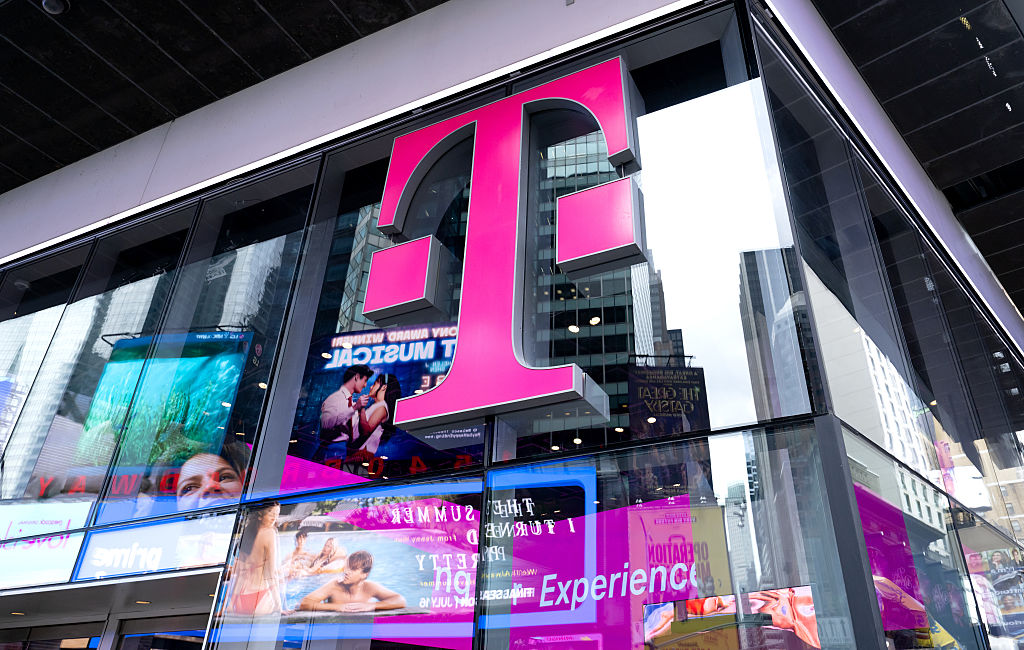T-Mobile Removes DEI Programs Just In Time For FCC To Approve Mergers

Boy, I tell ya, 2025 has really been the year of finding out how many companies don’t value Black dollars. Cell service provider T-Mobile is the latest company announcing an end to its commitment to diversity, equity, and inclusion (DEI) initiatives to appease the Trump administration.
Last week, T-Mobile sent a letter to Federal Communications Commission (FCC) Chair Brendan Carr stating it was ending its DEI initiatives “not just in name, but in substance.” T-Mobile has removed any mention of DEI on its website and employee training manuals, and no longer has any positions or teams dedicated to DEI. “This is another good step forward for equal opportunity, nondiscrimination, and the public interest,” Carr wrote in response to T-Mobile’s letter.
On Friday, the FCC approved T-Mobile’s acquisitions of regional carrier United States Cellular and internet provider Metronet in two separate transactions.
Most of the companies that’ve made similar moves have at least tried to soften it with some corporate speak about how “we stand committed to creating a welcoming environment for all customers,” but T-Mobile really stood 10 toes down here. “Not just in name, but in substance,” is crazy work and tells T-Mobile’s Black, Brown, and LGBTQ employees and customers that it has no problem throwing them under the bus when it’s politically expedient.
FCC Commissioner Anna Gomez, a Democrat, criticized T-Mobile’s decision, calling it “yet another cynical bid to win FCC regulatory approval. T-Mobile is making a mockery of its professed commitment to eliminating discrimination, promoting fairness, and amplifying underrepresented voices.”
What’s interesting to me is that the GOP loves to go on and on about “ideological purity tests” and then use their power to punish any individual or organization that doesn’t agree with their ideology. Throughout his tenure as FCC Chair, Carr has shown no hesitation in weaponizing his position to target any company that has DEI initiatives he agrees with. He most notably opened an investigation into NBC over Comcast’s DEI policies earlier this year. In an interview with Bloomberg, Carr openly said, “Any businesses that are looking for FCC approval, I would encourage them to get busy ending any sort of their invidious forms of DEI discrimination.”
Carr’s willingness to use the FCC’s merger approval process to pressure companies into removing their DEI initiatives has drawn criticism from House Democrats, resulting in the House Committee on Energy and Commerce opening an investigation into Carr.
As a result of the Trump administration’s crackdown on DEI initiatives, this year has seen several companies announcing an end to their DEI programs. While it may have gained them favor with the Trump administration, it hasn’t gone over smoothly with consumers.
Several consumer boycotts have been launched this year over companies removing their DEI programs, with Target being the most notable. The company announced in January it’d be winding down its commitment to DEI and is steadily facing the consequences of that decision. Several consumer boycotts were launched by Rev. Jamal Bryant and Minnesota activist Nekima Levy Armstrong, resulting in foot traffic being down in stores, and the company posting a sales loss during its quarterly earnings report in May.
Consumer boycotts over DEI closures are so effective that companies are listing them as potential risks for investors. While T-Mobile may gain the FCC’s approval, it’s now running the risk of alienating a substantial part of its consumer base.
SEE ALSO:
Stacey Abrams Warns Companies Dropping DEI, ‘It Costs You’
Survey: High-Level Business Execs Say DEI Is Necessary




Post a Comment
0 Comments